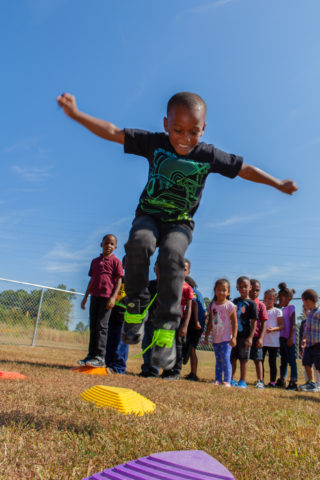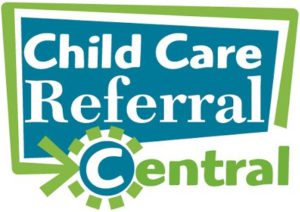For parents of kindergarteners and young school-aged children, consistent, year-round child care can be a crucial component to keeping the family’s income flowing. When school is out, where do children go? For most working families, summer camp is a great answer to the summer child-care dilemma. However, parents are often surprised that the prime time for registering for summer camp is right after Christmas!
That’s right – just after the Jolly Old Elf leaves, an astute parent’s next goal will be to review the summer camp options for their children’s next big break from school. Active Kids offers a helpful timeline for parents who plan to enroll their children in summer camp, to help families decide when to apply.
The earlier parents begin the search for summer camp, the more prepared they will be to:
- Maximize their children’s chances of being accepted at the camp(s) they prefer
- Access scholarship funding
- Access free or low-cost camp options
- Pay for summer camp early, make a payment plan and lock in early bird rates
- Access camp options within child care centers that accept the county’s subsidy vouchers
- Choose a variety of different experiences for their children, as camps operate on a week-to-week basis
- Avoid waiting lists
- Plan ahead for summer vacations
What kind of camp will your child need?

Many parents are tempted to choose camps where the children’s educational needs will be reinforced, and where they will have opportunities to learn through play, outdoor activities, arts and crafts and exercise. The types of camps available will include places that offer STEM learning opportunities, sports camps, remedial support camps, performing arts camps, visual arts camps and residential camps. There are even virtual camps, available for families that would prefer to keep the children at home, but still want them to be engaged and mentally stimulated during the summer.
Because of the plethora of different opportunities the child may enjoy, it is imperative to start looking as soon as possible, so families can discuss the different options with their child(ren) and see where their interests lie, to best plan for something their child will enjoy. For information on different types of camps, visit American Camp Association.
Often, families may choose several different camps: they may send the child to a residential camp for two weeks, and then have them at a day camp near home for the rest of the summer. Or, they may send them to different types of day camps throughout the summer. Some cities’ Parks and Recreation departments offer career-oriented camps, such as “junior police officer” camp where children can learn about the jobs that police officers do.
Some camps may offer lifesaving classes for children who may wish to become lifeguards or swimming lessons for children who would like to learn to swim different techniques and compete in swimming events. Summer camp offers children an opportunity to explore their interests, develop their talents and build their skill sets in areas that they wouldn’t have time for during the regular school year.
As children age, there may also be opportunities for them to attend camps at a reduced rate, or even be paid a modest wage, if they want to attend as junior camp counselors, or as lifeguards, or swimming instructor helpers, where they can support the counselors by helping teach younger campers.
How to research an in-person summer camp:

- Check to see if it is nationally accredited. Since summer camps do not open for more than four months per year, they are not required by North Carolina law to become licensed. Finding an accredited camp will ensure that higher standards of care, programming, nutrition, and staff education, as well as lower camper-to-counselor ratios, are a priority at that camp, and can help ensure that the children have a productive, positive and memorable experience.
- Ask the camp organizers about staff education, and whether staff come back year after year, or if they have new counselors every year. Ask about the ratio of campers to counselors (10 to 1 is a high quality standard). Ask whether there will be a nurse on-site for any injuries or illnesses that may occur. Ask what their emergency procedures are and whether they can accommodate the child’s allergies or special needs, if that applies.
- Find out about the camp’s COVID-19 policies. Do they screen the children every day? Do they require vaccinations for enrollment? Will they enforce mask usage among the campers? What is their plan for sanitizing surfaces that the children will be using, especially high-touch surfaces like doorknobs and bathroom fixtures? Will parents be informed about exposure to others (child or staff) who have COVID-19? What will their exclusion policy be? Will they offer a refund if a child is unable to attend due to illness?
- Ask where the children will be going for field trips, and how they will be transported. Ask about COVID-19 procedures aboard any bus, van, or other vehicle that takes children from camp to another venue (museums, pools, movies, skating rink, amusement park, etc.).
- Ask if your child will need a doctor’s physical examination prior to attending camp, and if there are any specific forms the camp needs the doctor to fill out – especially for sports camps.
- Find out what curriculum the camp uses. How often will the children be outside playing and how often will they be inside? Balance is key to a successful summer camp experience for children. They need to play, get fresh air and sunshine, and learn about the world around them, just as much as they may need reinforcement of basic reading, writing, math or science principles.
- Ask if the camp has a scholarship program your family may qualify for, or if they participate in any scholarship programs operated by private entities, such as Scott-Free.
- Attend information sessions and open houses to become familiar with the camp’s layout and buildings. Meet the counselors and director. Bring your child(ren) so they can meet the other children who will be attending. Ask other parents if they are returning this year and if so, what was their impression of the camp in previous years? And, even after your child is enrolled and begins attending the camp, stay involved. If there is a parents’ night, or an event where children present their work to parents, attend those events. Support the children’s efforts and provide positive feedback about their projects and accomplishments.
- For more tips, visit MyParenting.org.

Just as a good school year relies upon the amount of planning and research parents invest in finding just the right school environment, teachers, curriculum and supports for their children, a positive summer camp experience begins long before the summer is upon us.
To start your summer camp search as early as possible, you can get a listing of summer camps that meet your family’s criteria by calling our Child Care Referral Central program at 1-855-327-5933, or by going online and conducting a search for summer camps. We are always glad to take your call and can help you identify the camps that most closely meet the goals you have for your children’s summer enrichment experiences.




